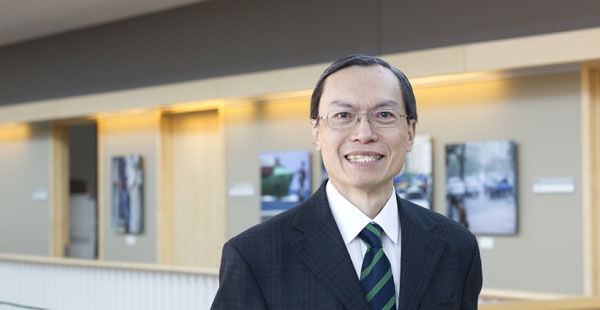Kenneth Wong is is the Walter and Leonore Annenberg Chair for Education Policy, a Professor of International and Public Affairs, and a Professor of Political Science at Brown University. His research focuses on the politics of education, urban school systems, policy innovation, and federalism. He has advised the U.S. Congress, the U.S. Secretaries of Education and Interior, and numerous state legislatures. In January 2019, Professor Wong was named in the 2019 Rick Hess Straight Up Edu-Scholar Public Influence Rankings, which lists the most influential university scholars in educational practice and policy.
In October of 2018, the U.S Department of Education awarded the Rhode Island Department of Education a $2.5 million grant. How might the money be spent to overcome the use of out-of-school suspensions and encourage alternative teacher responses to student ‘disobedience’?
We have to think about teachers as coaches, rather than people who just transmit knowledge. We need to provide teachers with the resources they require to work closely with students to understand their needs. I think the broader approach here is: let us look at the student first. Let us think about what kind of support the student needs in an urban, inner-city neighbourhood. My hope is that the grant money should, in part, go towards building the network of social and emotional support available to students as they progress through childhood into adulthood. I think this also links to the broader question of teacher accountability. Traditionally, we would only hold schools or teachers accountable for students’ test scores. This is, of course, reductive to the school experience. We need to champion the development of a school culture that is mindful of the holistic development of students.
As reported by the ACLU of Rhode Island, during the 2013-2014 school year students of color in Rhode Island were suspended at their highest rates in a decade, while white students experienced their lowest rate. Considering that, in the Providence district specifically, 9% of students are white but some 80% of teachers are white, how might we foster more equitable student-teacher interactions?
The statistics are unacceptable. Given the gap in racial demographics between the teaching force and the students they are serving, there are some very important policy considerations. For example, culturally responsive teaching is critical. We must equip our teachers with the tools and understanding necessary to support their increasingly diverse student body. Moreover, we need to encourage alternative means of disciplinary action. Some Rhode Island schools have introduced restorative justice as a means of resolving student conflict, which is important. We must create opportunities for enhancing both student-to-student understanding and teacher-to-student understanding. In doing so, we can gradually foster a more productive, supportive atmosphere for students and teachers alike.
Last December, Education Secretary Betsy DeVos justified the rescinding of Obama-era guidance intended to reduce racial discrimination in school discipline by affirming that “teachers and local school leaders deserve and need autonomy.” Is there a balance to be found between local autonomy and equitable schools nationwide?
This is a complicated issue because education in this country is decentralized. DeVos is pushing for a perspective of federalism – that education is a responsibility which ought to remain at the state level. But over the last 60 or so years, we have continually affirmed the unique responsibility of the federal government to ensure civil rights. I am of the opinion that the because of the vast state-to-state disparities we see in American schools — in class size, teaching quality, resources and extra-curricular activities — federal intervention in schools is justified, because the civil rights of students who attend these inequitable schools are being infringed upon.
As Chair of the Education Department at Brown, what sense of duty does the department have to the Providence public school district, and Rhode Island education legislation more broadly?
It is vital that we continually ask ourselves how we can leverage our research knowledge and expertise to help solve and improve the system around us. I have worked with closely with Providence Mayor Jorge Elorza, and organizations across the city, to do just that. We need to connect with the larger concerns, beyond College Hill — students and faculty alike must listen to the voices of their community, and our work is enriched by doing so.
